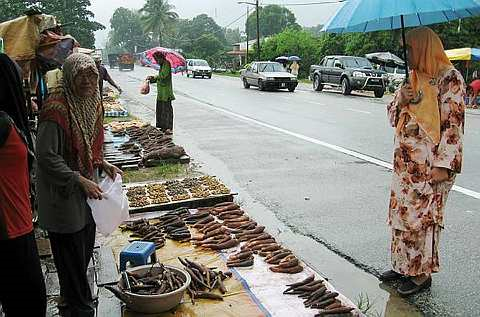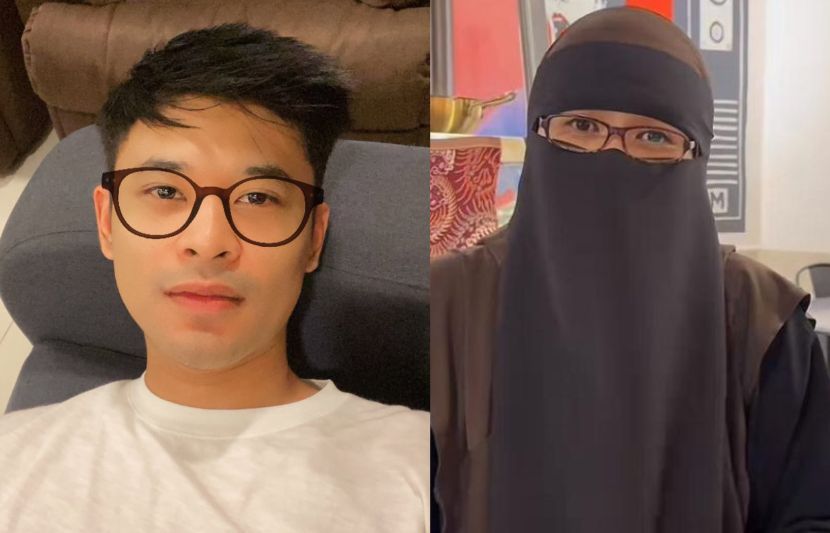IKIM co-organised a Symposium on Islam and Asia with the Japan Institute of International Affairs, hosted by the latter in Tokyo on Oct 15 and 16. There were approximately 30 senior participants from 11 countries, including seven delegates from IKIM.
The over-arching theme, Revisiting the Socio-political Dimension of Islam, was discussed in three sessions. Presenters from various nations deliberated on the rule of law, democracy, secularism, participating in Islamic governance, and, moderation, radicalism and extremism in international security and relations. Each session was followed by an hour-long discussion.
In his opening remarks, IKIM chairman Tun Ahmad Sarji Abdul Hamid deplored the events of Sept 11, 2001, as well as the US response, said to be a global crusade on terrorism – leading to the invasion of Afghanistan (2001) and the occupation of Iraq (2003).
There was also an urgent need to correct the mis-representations of Islam, chiefly through the mass media, as reflected in the use of many misleading erroneous terms such as “violent Islamic fanatics”, “Islamist radicals”, “Islamic terrorists”, and “global jihadists”.
IKIM director-general Datuk Dr Syed Ali Tawfik al-Attas, in his presentation, On the Political Institution of Democracy, pointed out that secularism, and subsequently the conception of secular democracy, is intrinsic to the Western worldview, which is inherently impermanent, shorn of real identity, and in the state of being disillusioned towards Revealed knowledge.
That opinion was later echoed in general by another speaker, Dr Azzam Tamimi (director, Institute of Islamic Political Thought, Britain), who borrowed quotes from Rachid Ghannouchi, on how Western colonialists had imposed secularisation on Muslim societies beginning in the middle of the 19th Century.
On the seeming contradiction between religious precepts and the requirements for a modern, democratic society, al-Attas emphasised that the paramount religious precept was justice.
Nevertheless, he elaborated, in order to be just, one cannot simply adopt the Western institution of democracy, as those institutions must first be interpreted and conceptualised according to the worldview of Islam so that democracy is made compatible with religion.
Since the transmission of Muslim institutions of democracy to the Western world beginning in the 10th Century was done by learned erudite savants, the same should be true in the other direction.
Due to their different conceptual philosophies, Western Democracy is not the solution to the current Muslim crisis. Al-Attas illustrated this by analysing how the institution of Western democracy understands freedom to mean a right to behave as one pleases in accordance with societal acceptance, devoid of responsibility as specified by God; whereas as far as Islam was concerned freedom included the element of responsibility as defined by God, hence, freedom meant a choice for the better.
Similarly on human rights, al-Attas observed how the institution of Western democracy understood human rights to mean just that, a right; whereas Islam brought it to mean a trust.
On gender equality or women’s rights, the institution of Western democracy understood those rights to mean equal status regardless of the different burden of responsibility, whereas Islam understood it to mean a choice for equal opportunity, for example, in terms of seeking knowledge.
On the subject of participation in Islamic Governance, three presenters talked on the experience of their respective countries.
Presenting how Muslims in minority sustained their activism in a secular setting throughout the past 50 years, Dr Syed Muhd Khairudin Aljunied (National University of Singapore) made special reference to the experience of the Muhammadiyah movement in Singapore.
The most extensive paper in the session on contemporary radicalism and extremism was presented by Prof Dr Wan Mohd Nor Wan Daud (Honorary Fellow, IKIM). Among other things, he highlighted the following:
“First, internal reform of Muslim religious education, concentrating first at the higher levels (especially the madrasah and the university), by re-traditionalising Islamic education and re-introducing proper Sufi narratives and ethical discourse by authoritative and moderate scholars representing their Community, even as they may be critical of certain secular and Western ideas and institutions.
“While subjects dealing with modern humanities, including comparative religion should be introduced, simply Westernising or liberalising traditional Islamic education will be counter-productive.
“Second, the establishment of a more just and transparent leadership and governance in Muslim-majority countries, which are not perceived to be Western puppets. The West’s persistent support for political leaders who were widely perceived as unjust and corrupt by Muslim themselves will increase support for the radicals.
“Third, permanent peace in the Middle East, especially in Palestine and Iraq, must be achieved. The Muslims and the Arabs must accept the rights of Israel to exist and prosper within the boundaries determined by the United Nations; but Israel and the international community should help with the restorative and other forms of compensation for the Palestinian people to live and prosper with meaningful independence.
“Fourth, a similarly permanent solution to the problems of indigenous Muslim minorities must be found, for example, in the Philippines, Thailand, and Myanmar.
“These Muslims should be made to understand that they must live under current national governments – but meaningful autonomy should be granted. Their religious, linguistic, and cultural identity should be protected, and their socio-economic opportunities should be enhanced.
“Fifth, immigrant minority Muslim communities should be given due rights like the others. Meanwhile, they must recognise their true responsibilities within the new nation-states, and contribute the utmost to be the moral and socio-economic strengths of the nation.
“Sixth, the international community should not demonise Islam and the Muslims merely due to the faults of an extremely small number, while conveniently ignoring or glossing over the more serious atrocities against the Muslims and others by other religious, secular or tribal entities, failing which will give rise to more extremists and radicals, and make many Muslims perceive the international community’s peaceful endeavours as hypocritical.”
There was a panel discussion on the Prospect of Coexistence with Islam, held the following afternoon and was attended by an audience of around 100. IKIM director Ir Dr Muhamad Fuad Abdullah deliberated on Malaysia’s multi-religious and multi-racial communities.
He explained how their co-existence was based on the following basic understanding: first, that Islam was the religion of the Federation, while every person had the right to profess and practice his own religion.
Second, that the Malay language was the official, national language, while there was freedom to learn and speak other languages.
And third, that there was a special provision for the Malays and the natives of Sabah and Sarawak – quotas for their entry into the civil service, public scholarships and public education, all understood within this basic socio-legal framework.


































